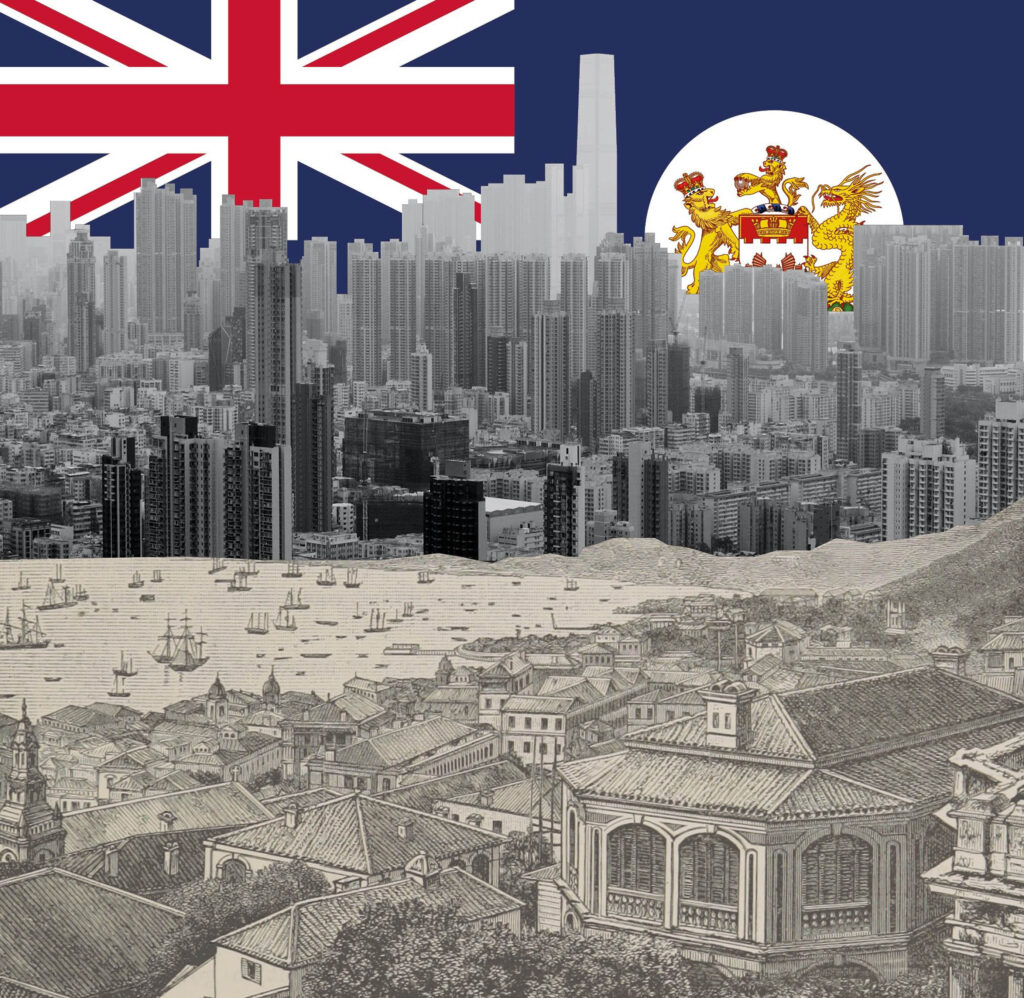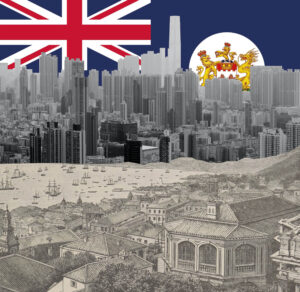The Union Jack has made regular appearances at democracy rallies in Hong Kong, often flying next to the Stars and Stripes and usually alongside the flag of Hong Kong from the time it was a British colony. To most protesters in Hong Kong, these flags represent their dream to become a free and democratic state. But for some, they epitomise an era when the city was a British overseas territory, and times were better.
Since the imposition of the national security law, which criminalises even the most modest forms of dissent against the proChina government, many Hongkongers have begun reminiscing about the days that their state was still under British rule. The Hong Kong-United Kingdom Reunification campaign, which has long been the brunt of jokes, is now finding new supporters. Across their social media platforms, the campaign has 20.000 followers. And in 2015, a petition launched by the campaign to coerce the British government to reclaim sovereignty over Hong Kong garnered more than 3,500 signatures. Support for the proposal has likely increased since.
“Anyone who sticks to the global values of democracy and freedom of speech is a good choice,” says Charlie Cheung*, who is in her late twenties and works in the finance sector.
Cheung used to be a hardline supporter for Hong Kong’s inde pendence from British rule. But the government’s increasingly tough crackdowns against the anti-Extradition Bill protests convinced her that only a return to the time Hong Kong was a British colony could save her beloved city.
According to her, the city-state would never be able to defend itself if China one day chose to invade, meaning total independence is not currently an option. To her, Britain is the most logical ally.
“A return to British sovereignty would grant Hong Kong the neces sary military protection to remain autonomous from China. In return, Hong Kong, one of Asia’s most important global financial hubs, would offer itself as an economic asset to the United Kingdom. We hope the United Kingdom can take back Hong Kong and give us peace.”
Call for British Involvement
In 1984, the Sino-British Joint Declaration treaty set the terms for the transfer of sovereignty of Hong Kong from the United Kingdom to China. The handover, which took place in 1997, is now widely considered a failure.
The declaration leaves a lot up to interpretation. It states that the Hong Kong Special Administrative Region “shall maintain a high degree of autonomy” for at least 50 years, after which the city-state would be absorbed into the Chinese political system. This buffer period was officially agreed upon so that Hongkongers would have time to adjust to the Chinese culture and way of life, but part of the expectation was for the Chinese regime to shift towards a more liberal societal order.
In recent times, the tides have shifted, and supporters of the democracy movement argue that the declaration has been violated, and some claim that the United Kingdom is legally obligated to “take back Hong Kong.”
Military intervention is highly unlikely, but the momentum for British involvement in the issue is growing. After the central government in Beijing expelled four prodemocracy lawmakers in Hong Kong’s Legislative Council (the city’s parliament), causing fifteen other pro-democracy lawmakers to resign in protest, the U.K. government formally ruled that China breached the Sino-British Joint Declaration.
U.K. Foreign Secretary Dominic Raab said about the decision that “the U.K. will stand up for the people of Hong Kong,” but made no indication he intended to challenge China’s sovereignty over the city.
Nostalgia for Hong Kong’s Golden Age
One man who dropped everything to fight for democracy in Hong Kong is 71-year old Elmer Yuen. Popularly known as “Daddy Yuen,” he left his million dollar business to lobby for Hong Kong’s democracy movement overseas. He’s in the process of taking the issue to the High Court in the United Kingdom, and he wants the British government to sue the Chinese Communist Party (CCP) for violating the Joint Declaration, and force the U.K. to readopt Hong Kong as an overseas territory through legal means.
“Everything they promised in the joint declaration, they broke,” he said. “A place belongs to the people who live there, so Hong Kong’s fate should be decided by Hong Kong’s people.”
For Thomas Ng*, who’s in his late thirties and grew up in the period between the Joint Declaration and the handover, the national security law intensified a long-looming melancholy and opened his mind to new solutions. He thinks reunification with Britain could work well.
“I just don’t want to be under Chinese authority,” he said. “My friends feel the same way. A lot of people actually reminisce about the time when we were still under British law, a lot of people just think: ‘anything but China.’”
But according to John Carroll, a professor of modern Chinese history at the Hong Kong University, the reunification campaign’s chances are slim. He calls the idea “ridiculous.” According to him, the British government’s incentive to take back Hong Kong is non-existent.
“There is no way this could happen,” he says. “The bigger question is why people even think it’s possible. In fact, this obsession with the United Kingdom may actually have adverse effects for the democracy movement,” said Carroll.
“This is a Hong Kong affair, and it has nothing to do with any other countries. It will only make it evident to the Chinese that Hong Kong’s people are colluding with a foreign power. The last thing you want is to give the government [in Beijing] an excuse.” Carroll add ed that the national security law should not “come as a surprise.”
What cannot be denied is that China’s crackdown on freedom has reignited nostalgia in Hongkongers for the city’s “golden age” during the 80s and 90s.
“I miss the freedom we had to express our views, even if it was critical of the authorities, without being called unpatriotic or breaking the law,” said Ng, reminiscing about his teenage years in British Hong Kong.
Benjamin Chan*, a student in his early twenties who was born just around the time the handover from Britain to China took place, shares the nostalgia but doesn’t think reunification is the answer.
“I think it’s mostly just people experiencing this melancholic feeling that everything was better in colonial times. We are a city capable of functioning on our own, at least systematically, and going back to the United Kingdom just seems like taking a step backwards to me.”
Most Hongkongers view the campaign for reunification with Britain as little more than a means to an end. They are hoping it will lead to a referendum which would allow them to decide their own fate. It is almost unimaginable that the Chinese Communist Party would ever give up its sovereignty of the region. But, for many Hongkongers, there is little choice but to continue resisting.




